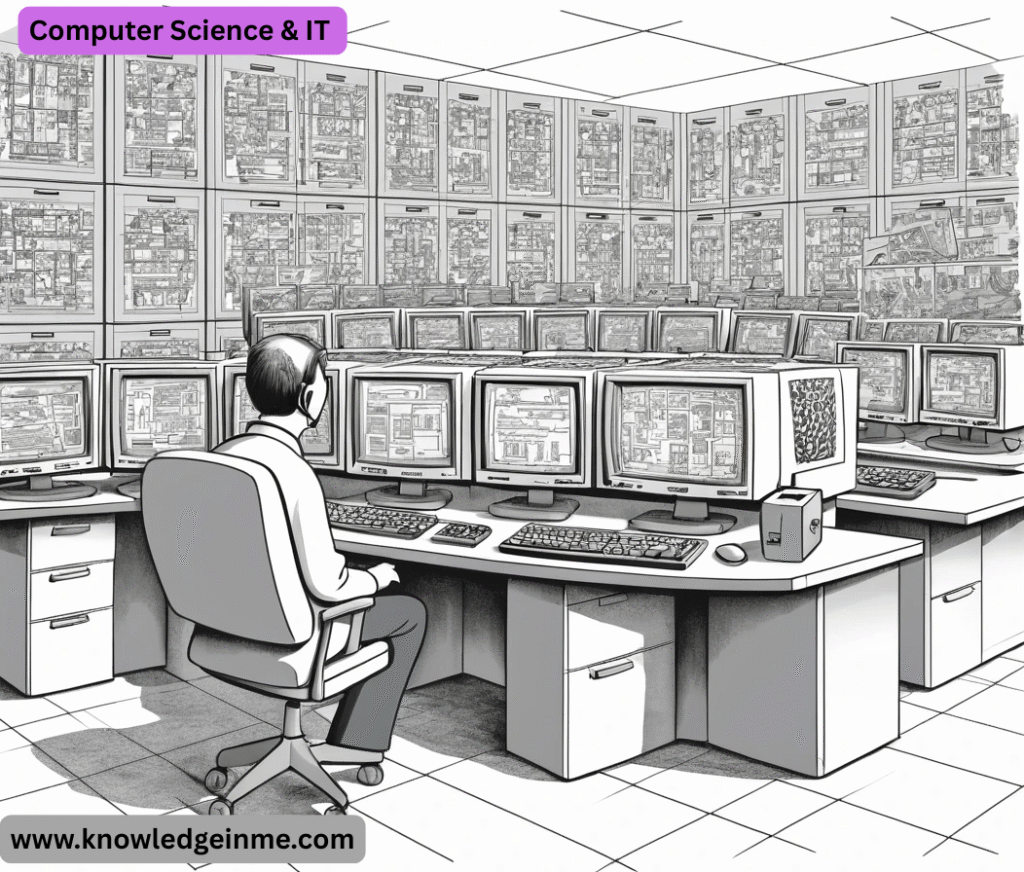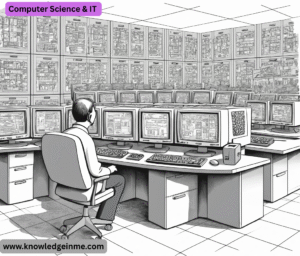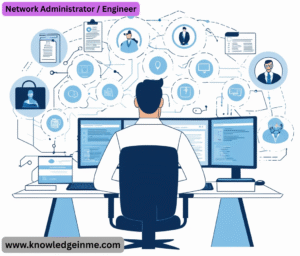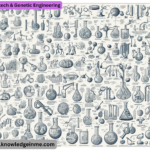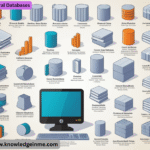Computer Science & IT Of course. While often grouped together, they represent two distinct but deeply interconnected disciplines. Here’s a comprehensive breakdown of both fields, their differences, specializations, and career paths.
Core Definitions: The Fundamental Difference
- Computer Science (CS): The theory and foundation. It’s the study of algorithms, computation, information, and automation. CS asks: “How can we solve this problem computationally, and what are the fundamental limits of what can be computed?”
- Focus: Software, data structures, algorithms, theory, development, innovation.
- Analogy: The architect and engineer who designs the car’s engine, transmission, and aerodynamic shape.
- Information Technology (IT): The application and implementation. IT asks: “How can we use existing technology to meet the needs of this organization?”
- Focus: Hardware, networks, infrastructure, maintenance, support, security.
- Analogy: The mechanic and support crew who maintains the car, fixes it when it breaks, and ensures it meets the driver’s daily needs.
Key Areas of Study & Specialization
Computer Science (CS)
- CS is heavily math-oriented (discrete mathematics, calculus, statistics) and involves a great deal of programming and theoretical problem-solving.
- Theory: Algorithms, Computational Theory, Data Structures, Graph Theory.
- Systems: Operating Systems, Computer Architecture, Parallel & Distributed Computing, Computer Networks.
- Software Development: Programming Languages, Software Engineering, Compiler Design, DevOps.
- Artificial Intelligence (AI) & Machine Learning (ML): Neural Networks, Natural Language Processing (NLP), Computer Vision, Robotics.
- Data Science: Big Data Analytics, Data Mining, Data Visualization, Database Management.
- Human-Computer Interaction (HCI): UX/UI Design, Usability Testing.
- Security: Cryptography, Network Security, Ethical Hacking.
Information Technology (IT)
- IT is more practical and hands-on, focusing on applying existing technologies to solve business problems.
- Network & Systems Administration: Managing servers, cloud platforms (AWS, Azure), and local area networks (LAN/WAN).
- IT Support & Help desk: Troubleshooting hardware/software issues, providing technical support to end-users.
- Database Administration: Installing, configuring, and maintaining database systems (e.g., Oracle, SQL Server).
- IT Management: Project management (often using methodologies like Agile or ITIL), budgeting, and strategic planning for technology within an organization.
Educational Paths
- The curriculum is heavily focused on mathematics, logic, and intensive programming courses from the first year.
- Information Technology: Can be pursued through a B.S. The curriculum is more applied, with courses on networking, system administration, and business operations. Many IT professionals also start with associate degrees or industry certifications.
Career Paths & Job Titles
- The lines can blur, especially in roles like DevOps or Security, but the general trends hold.
- Computer Science Careers (Often “Builders” and “Innovators”)
- Software Developer / Engineer
- Data Scientist
- Machine Learning Engineer
- Research Scientist
- Algorithm Engineer
- Mobile App Developer
- Game Developer
- Web Developer (Back-End/Front-End)
Systems Architect
- Information Technology Careers (Often “Maintainers” and “Implementers”)
Network Administrator / Engineer
Systems Administrator
- IT Support Specialist / Helpdesk Analyst
- Cybersecurity Analyst / Specialist
- Cloud Administrator / Architect
- Database Administrator (DBA)
- IT Project Manager
- IT Director / Chief Information Officer (CIO)
The Convergence: How CS and IT Work Together
- In the real world, these fields are not siloed. They are parts of a continuous spectrum.
- A Computer Scientist (Software Engineer) might develop a new application.
- An IT Professional (Systems Administrator) will deploy that application on the company’s servers, ensure the network can handle the traffic, and provide support to employees using it.
- A Cybersecurity Professional (from either a CS or IT background) will secure the application and the server it runs on from attacks.
Example: Streaming a Movie
- CS: Designs the compression algorithms that shrink the video file, the recommendation algorithm that suggests what to watch next, and the user interface of the app.
- IT: Manages the massive data centers (or cloud infrastructure) that host the video files, maintains the network that delivers the data to your home, and provides customer support if the service goes down.
Which One is Right for You?
- Choose Computer Science if: You love deep problem-solving, mathematics, and logic. You want to invent new software, work with algorithms, and create the next big tech innovation. You enjoy building things from the ground up.
- Choose Information Technology if: You are practical and enjoy working with hardware and existing software systems. You are a good communicator who likes helping people solve technical problems and want to ensure technology runs smoothly for an organization.
The Blurred Lines: Hybrid Roles and The Modern Landscape
The distinction between CS and IT is increasingly fluid.
- DevOps / Site Reliability Engineer (SRE): This is the quintessential hybrid role. It combines CS skills (coding, automation with Python/Go) with IT skills (managing infrastructure, monitoring, deployment). The goal is to bridge the gap between writing software and operating it.
- Cybersecurity Engineer: While an IT Security Analyst might focus on implementing firewalls and monitoring alerts, a Cybersecurity Engineer (with a stronger CS background) might design security protocols, perform deep vulnerability research, and write code for security applications. Both are critical.
- Cloud Architect/Engineer: Requires understanding CS concepts like distributed systems and scalability to design applications, plus IT skills to configure virtual networks, security groups, and storage solutions on platforms like AWS or Azure.
- Data Engineer: Builds the “plumbing” for data. Requires CS skills (strong coding, algorithms for data processing) and IT skills (managing data pipelines, clusters, and databases).
Emerging & Niche Areas within CS & IT
- The field is constantly evolving, creating new specializations.
Within Computer Science:
- Quantum Computing: Applying quantum mechanics to compute problems intractable for classical computers.
- Bioinformatics / Computational Biology: Using CS to analyze biological data (e.g., genome sequencing).
- AI Ethics & Explainable AI (XAI): Ensuring AI systems are fair, unbiased, and their decisions can be understood by humans.
- Extended Reality (XR): Development for Virtual Reality (VR) and Augmented Reality (AR) environments.
Within Information Technology:
- Zero Trust Security: Moving beyond the old “castle-and-moat” network model to “never trust, always verify.”
- IoT (Internet of Things) Management: Securing and managing the massive network of connected devices, from smart sensors to industrial equipment.
- Automation Engineering: Using tools like Ansible, Chef, and Puppet to automate IT infrastructure provisioning and management.
- Disaster Recovery & Business Continuity: Designing and implementing strategies to keep businesses running during cyber-attacks or natural disasters.
The Educational Spectrum: Beyond the Bachelor’s Degree
- Computer Science: The path to advanced research or highly theoretical roles (e.g., AI Research Scientist) almost always requires a Master’s or PhD.
- Information Technology: While a bachelor’s is valuable, many successful IT professionals build careers through experience and industry certifications. Certifications from Cisco, CompTIA, Microsoft, and cloud providers are often treated as equivalent to a degree for many roles.
- Bootcamps: Intensive, short-term training programs are popular for CS-adjacent roles like Web Development and Data Analytics. They are less common for core IT infrastructure roles, which require broader, more experienced-based knowledge.
Making the Choice: A Deeper Look
Ask yourself these questions:
- You might lean towards Computer Science if:
- You enjoy math and logic puzzles.
- You don’t just want to use software; you want to know how and why it works at a fundamental level.
- You get satisfaction from building something from scratch.
- You are fascinated by futuristic concepts like AI and quantum computing.
- You’re comfortable with abstract concepts and theory.
- You might lean towards Information Technology if:
- You are a natural troubleshooter and enjoy fixing things.
- You’re practical and results-oriented.
- You prefer hands-on work with hardware and systems.
- You have strong interpersonal skills and enjoy helping others.
- You want a career path where you can start with certifications and grow with experience.

